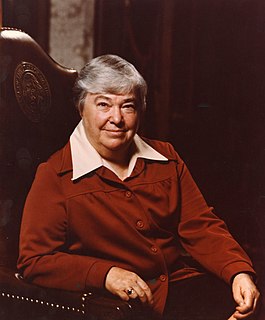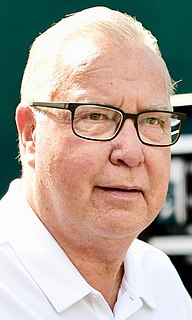A Quote by Henry Kissinger
High office teaches decision making, not substance. It consumes intellectual capital; it does not create it. Most high officials leave office with the perceptions and insights with which they entered; they learn how to make decisions but not what decisions to make.
Related Quotes
Cabinet members are soon overwhelmed by the insistent demands of running their departments. On the whole, a period in high office consumers intellectual capital; it does not create it....The less ministers know at the outset, the more dependent they are on the only sources of available knowledge; the permanent officials.
There are times where I'd say the Oval Office, you use to gather the facts. The decisions you probably make late at night, or at least I do. But there are some times where you think you've made a decision, but during that walk, where you're announcing the decision, you've just got to make sure that, you're prepared to live with it, because as you know George, a lot of these decisions are not - the outcomes are uncertain.
The way to make better decisions is to make more of them. Then make sure you learn from each one, including those that don't seem to work out in the short term: they will provide valuable distinctions to make better evaluations and therefore decisions in the future. Realize that decision making, like any skill you focus on improving, gets better the more often you do it.
We are living in a society that is totally dependent on science and high technology, and yet most of us are effectively alienated and excluded from its workings, from the values of science, the methods of science, and the language of science. A good place to start would be for as many of us as possible to begin to understand the decision-making and the basis for those decisions, and to act independently and not be manipulated into thinking one thing or another, but to learn how to think. That's what science does.
The most basic principle to being a free American is the notion that we as individuals are responsible for our own lives and decisions. We do not have the right to rob our neighbors to make up for our mistakes, neither does our neighbor have any right to tell us how to live, so long as we aren’t infringing on their rights. Freedom to make bad decisions is inherent in the freedom to make good ones. If we are only free to make good decisions, we are not really free.
The most valuable insight I have made about how people make decisions is that when they become skilled they don't have to make decisions - choices between options. Instead, they can draw on experience and the patterns they have acquired to recognize what to do, ignoring other options. This is the basis of the Recognition-Primed Decision (RPD) model my colleagues and I described thirty years ago.











































